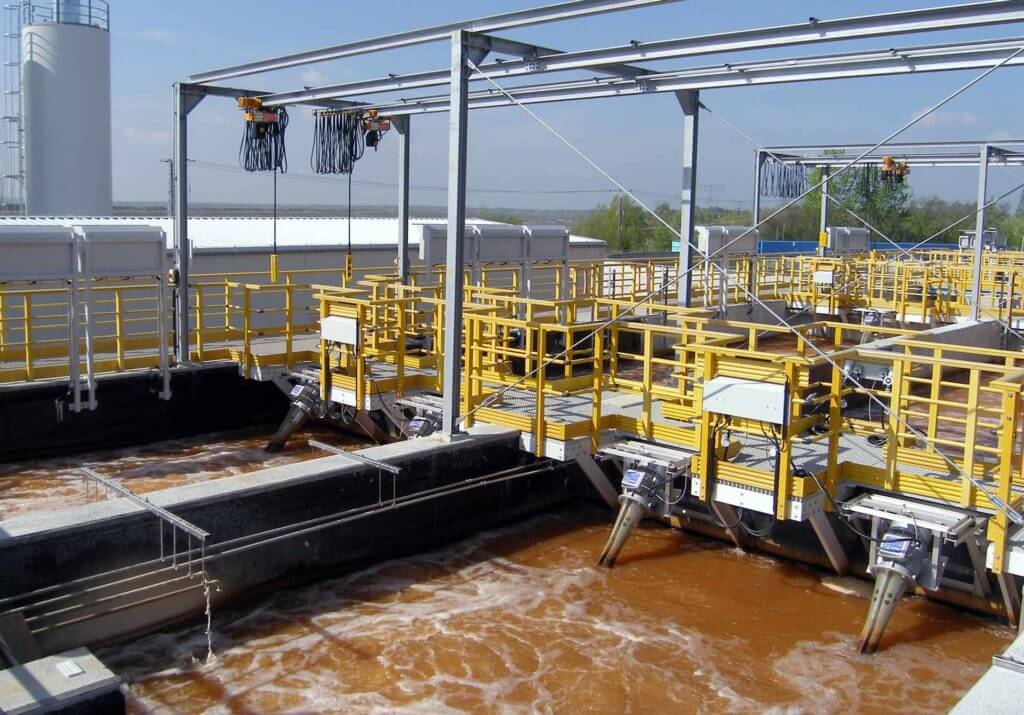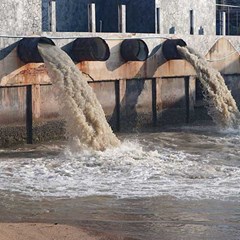Industrial Waste Water Treatment-- Advanced Solutions for Cleaner Effluents
Industrial Waste Water Treatment-- Advanced Solutions for Cleaner Effluents
Blog Article
Technologies and Advancements in Industrial Waste Water Therapy Technologies
The landscape of commercial wastewater therapy is undertaking a transformative change, driven by developments that enhance both efficiency and sustainability. As regulative standards advance, the integration of AI and maker discovering right into wastewater management systems guarantees to enhance operations and ensure compliance.
Summary of Waste Water Treatment Technologies
Wastewater treatment technologies encompass a variety of approaches made to get rid of pollutants from industrial effluents before their launch right into the atmosphere. These technologies are vital for maintaining ecological equilibrium and making certain conformity with environmental regulations. The key groups of wastewater therapy include physical, chemical, and organic techniques, each serving distinctive objectives based on the nature of the impurities existing.

Biological treatment techniques employ microbes to break down organic matter, making them specifically effective for organic-rich effluents. Strategies like turned on sludge and biofilm reactors harness the all-natural deterioration capacities of microorganisms, leading to substantial decreases in biochemical oxygen need (BODY)
Advanced Filtration Strategies
Advanced purification strategies stand for an essential evolution in the realm of industrial wastewater treatment, improving the effectiveness of pollutant removal processes. Industrial Waste Water Treatment. These techniques include a variety of innovations, including microfiltration, ultrafiltration, nanofiltration, and reverse osmosis, which offer sequential barriers for various bit sizes and chemical structures
Microfiltration and ultrafiltration utilize membrane systems to get rid of put on hold solids, microorganisms, and bigger organic molecules, improving the quality of effluent before more treatment. Nanofiltration links the void between ultrafiltration and turn around osmosis, successfully removing divalent ions and organic substances, thus minimizing the lots on downstream processes.
Reverse osmosis uses the highest degree of purification by enabling only water and little particles to pass with its semi-permeable membranes, making it ideal for redeeming high-quality water from industrial effluents. Recent innovations in membrane layer technology, including the advancement of more fouling-resistant and long lasting products, have substantially enhanced operational effectiveness and lowered costs.
Integrating these advanced purification methods not just enhances the overall therapy process but likewise adds to sustainability efforts by enabling water reuse and source healing in commercial setups. (Industrial Waste Water Treatment)
Organic Therapy Developments

Moreover, the growth of engineered organic systems, such as membrane bioreactors (MBRs), integrates biological treatment with sophisticated membrane layer filtering. This integration enables higher effluent quality and minimized footprint, making it suitable for space-constrained commercial facilities. Technologies in genetically crafted microorganisms have additionally emerged, enhancing the biodegradation of details contaminants, such as drugs and heavy metals, that are typically challenging to remove.
In addition, the implementation of bioaugmentation techniques, where beneficial microbes are introduced to boost the existing biological therapy procedures, has actually revealed encouraging lead to boosting therapy performance. These advancements collectively represent a fad in the direction of more effective and sustainable organic therapy methods that can adjust to the progressing intricacies of industrial wastewater streams. see it here As industries proceed to prioritize environmental compliance, these organic technologies will play a critical function in wastewater monitoring.

Source Healing Methods
In commercial setups, the assimilation of resource healing techniques has become significantly important for boosting sustainability and reducing waste. These my link approaches concentrate on drawing out beneficial materials and energy from wastewater streams, thereby changing possible pollutants into reusable sources.
One popular method is vitamins and mineral healing, where nitrogen and phosphorus, typically present in excess in wastewater, are caught and exchanged fertilizers. This not just reduces ecological influences but likewise supplies a round economic situation solution for farming applications. Additionally, modern technologies such as anaerobic digestion permit the conversion of natural waste right into biogas, an eco-friendly energy resource that can counter nonrenewable fuel source usage in commercial operations.
Additionally, advanced filtration and membrane modern technologies help with the healing of commercial spin-offs such as salts and metals. These recouped materials can be rehabilitated into manufacturing processes, reducing the demand for virgin sources.
Future Trends in Drainage Management
As sectors progressively prioritize sustainability, the future of wastewater management is set to undergo considerable changes. Technical developments, such as synthetic intelligence and artificial wikipedia reference intelligence, will certainly make it possible for much more efficient surveillance and administration of wastewater systems. These innovations can forecast upkeep demands, optimize treatment processes, and improve decision-making, inevitably decreasing functional prices and environmental influence.
In addition, the combination of circular economy principles will certainly play an important duty in wastewater management. Industries are expected to change towards systems that not just treat wastewater but additionally recoup valuable sources, such as nutrients, water, and energy. This change will reduce waste and advertise the reuse of materials, straightening with international sustainability objectives.
Emerging treatment strategies, such as membrane bioreactors and progressed oxidation processes, will certainly further enhance the efficiency of wastewater therapy, permitting for greater top quality effluents suitable for reuse. Additionally, regulative frameworks are likely to develop, highlighting more stringent criteria for wastewater discharge and encouraging sectors to adopt ingenious treatment remedies.
Final Thought
In verdict, the advancement of industrial wastewater treatment technologies demonstrates a substantial change towards enhanced effectiveness and sustainability. Advancements in innovative filtration methods, biological treatments, and source recuperation methods highlight the sector's commitment to ecological stewardship. The combination of synthetic intelligence and artificial intelligence additionally maximizes these processes, guaranteeing governing compliance and promoting a circular economic climate. Proceeded improvements in these areas will play a critical role fit the future of wastewater management and securing vital water sources.
The landscape of industrial wastewater therapy is undertaking a transformative shift, driven by innovations that enhance both performance and sustainability.Wastewater therapy modern technologies include an array of methods developed to eliminate pollutants from industrial effluents before their release right into the atmosphere.Taking advantage of the power of organic processes has led to significant technologies in the therapy of commercial wastewater.In addition, the implementation of bioaugmentation techniques, where advantageous germs are introduced to boost the existing biological therapy processes, has actually shown promising results in boosting therapy efficiency. These technologies collectively signify a trend towards even more sustainable and efficient biological treatment approaches that can adapt to the developing complexities of industrial wastewater streams.
Report this page